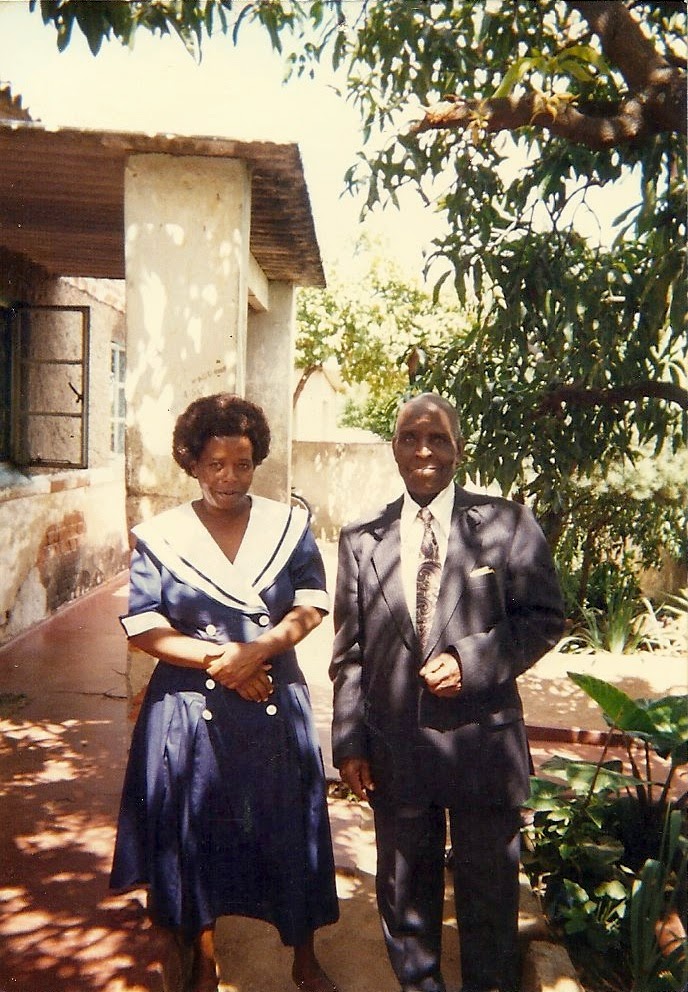(Judy Booth wrote this)
A loud shout, with a French accent, made me jump, “Madam!”
I glanced left just as a half a side of beef, its red meat, white
tendons and bones holding it together, bumped into me. The man hefting
the carcass, the size of a dresser, disappeared into the crowd.
Helen, native of Ghana, and I had made a tedious and hot journey by bus
to the Kumasi market, the largest in West Africa, across red-clay earth
highways the previous day to search for trade beads.
From a
high hill we looked down on an ocean of corrugated tin rooftops
scattered haphazardly all the way to the horizon. The market was the
city. Whole villages swooped down from Burkina Faso and Mali, five
hundred miles north to sell foot-ball sized yams, tomatoes, onions,
cashew nuts, overflowing rattan baskets of red peppers, bolts of
tie-dyed fabric and trade beads that had been circling the globe for
generations like currency.
I kept losing Helen and would
frantically call out her name as we wandered dark labyrinthine
passageways. I had been in Ghana for several months, but still the
scorching heat, the thick crowds of people jostling me was overwhelming.
The smell of diesel, gas, urine, incense, herbs, fish, goat stew and
sweaty bodies assailed me. I swished flies out of my face as I looked
around at the never-ending swath of humanity. We walked through a mile
of stalls filled with just tomatoes and onions, another hundred stalls
of Muslim men in kaftans and coiffed jelabas expertly sewing clothes on
ancient black sewing machines.
The sound of generators mixed
with Fante, Hausa, Twi and Arabic voices. I rounded a corner deep in
the bowels of the market, the sun intrepidly sneaking between tin
rooftops and saw row upon row of exotic beads: Large and heavy bunches
of solid sand-cast beads, cut glass gold, powder-blue, amber and
mint-green beads, oven-fired and hand painted, beads made from rock,
shell and old phonograph records.
Tired and thirsty I sat down
in one of the shops after inquiring of its owner where he got his beads.
As was customary with every African Muslim I met, I was treated with
the utmost respect. “Bring the madam water,” he ordered a young boy in
the stall opposite.
He shook my hand, snapping his fingers to end
the shake in typical West African fashion, swept a spot clean on a
wooden bench and placed a clean hanky on it for me to sit on. He wore
jeans, unusual for a Muslim, and a cowboy shirt. His kinky black hair
was shorn very short.
He said his father had traded beads and
his father before him and his father before him, and on and on. He had
attended a bead show in Europe and in New Mexico. He spoke English
well. I gratefully accepted the water brought to me in the ubiquitous
clear plastic bag sealed tight. I bit off the end of it, spat it into
the gutter and sucked its coolness down my throat.
He asked if
he could smoke one of my cigarettes. I handed him two. He put one in
his pocket, the other in his mouth. “What can you tell me about trade
beads?” I asked. “Where do they come from?
“These are
Russian Blues,” his long sinewy fingers expertly flipping through a
strand of faceted glass periwinkle blue beads. “They are probably about
150 years old.”
“Were they made in Russia? “ I asked.
“No, probably Venice,”
“How can you tell?”
He shrugged, “I just know, I’ve been doing this all my life. If you
want to learn beads, you must do nothing else. Go to Keta. A family
there has been making sand-cast beads for generations. You can watch
how they are made.”
He unfolded a wrinkled cloth and pulled a strand
of antique Chevrons from a box hidden under a bench used to trade for
ivory, gold and slaves in eons past. And maybe they still were.
“China makes beads that look old and are hurting the market.” He spat.
“China makes plastic beads.”
His eyes sparked as he sat across
from me. I felt like we were kindred spirits, loving markets,
commerce, travel and beads. I wanted to sit with him forever. The sun
moved across the sky. I peered down the passageway in the fading
light.
“I must find my friend,” I jumped up and dashed down the
passageway as coal braziers lit the night. I yelled for Helen. The
market was silent, night falls fast near the equator. Where was she?




























